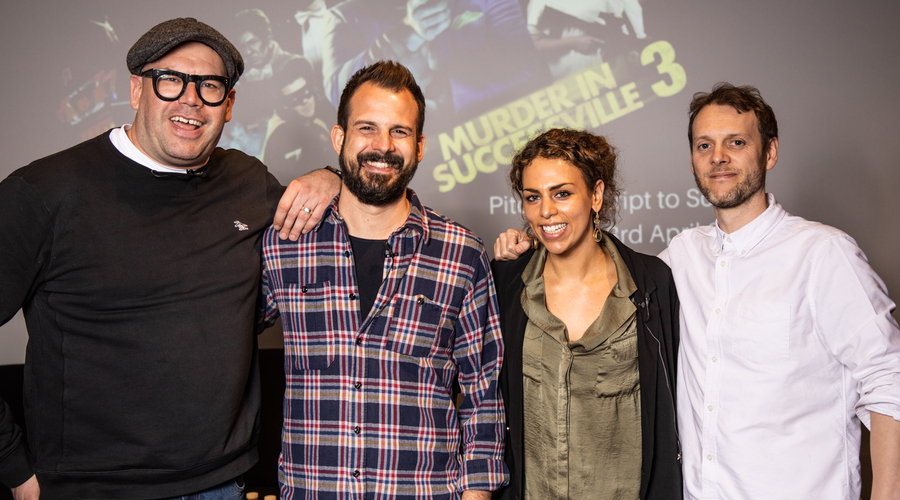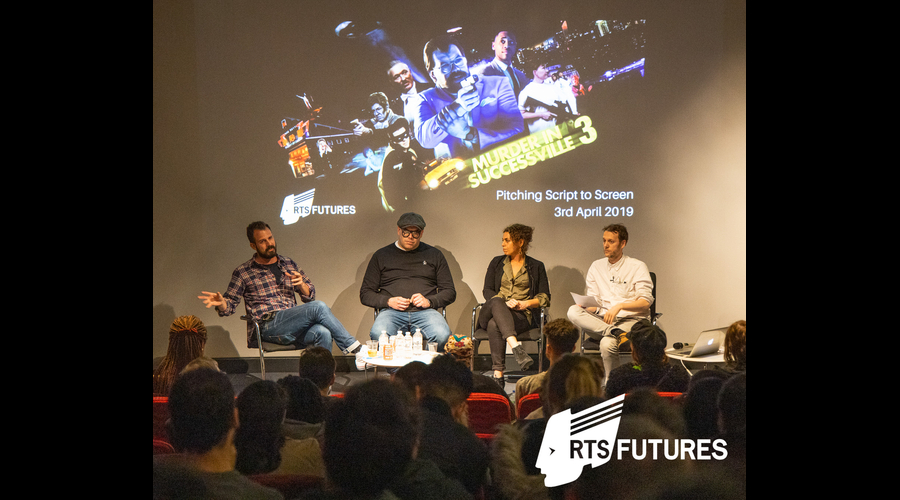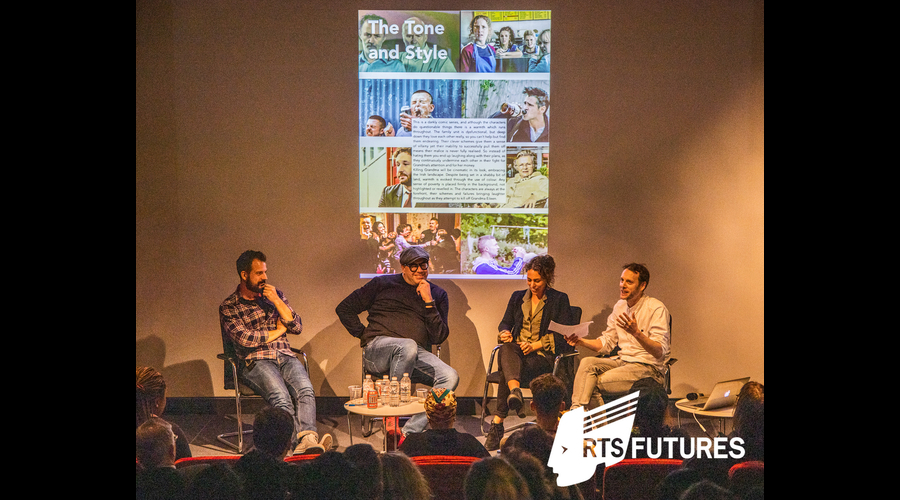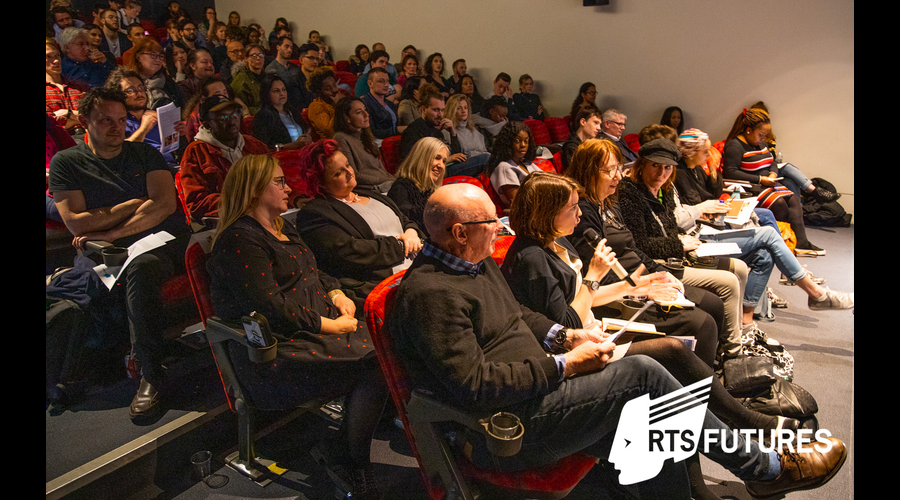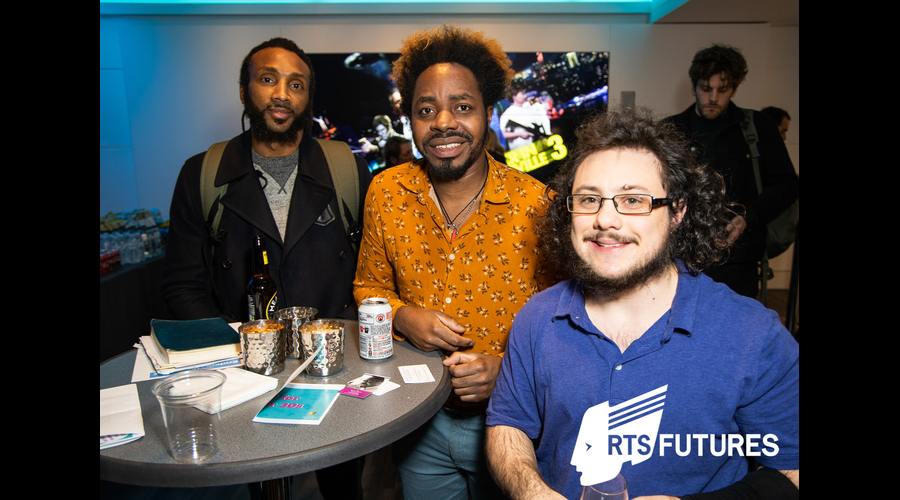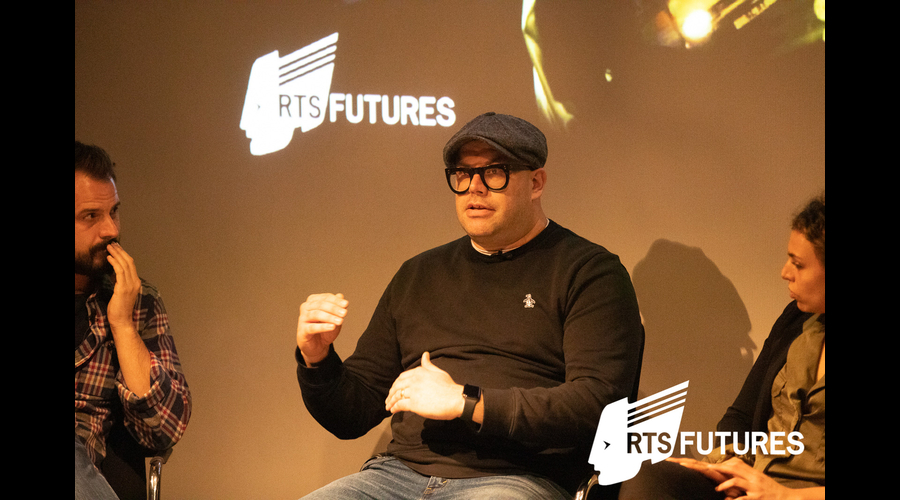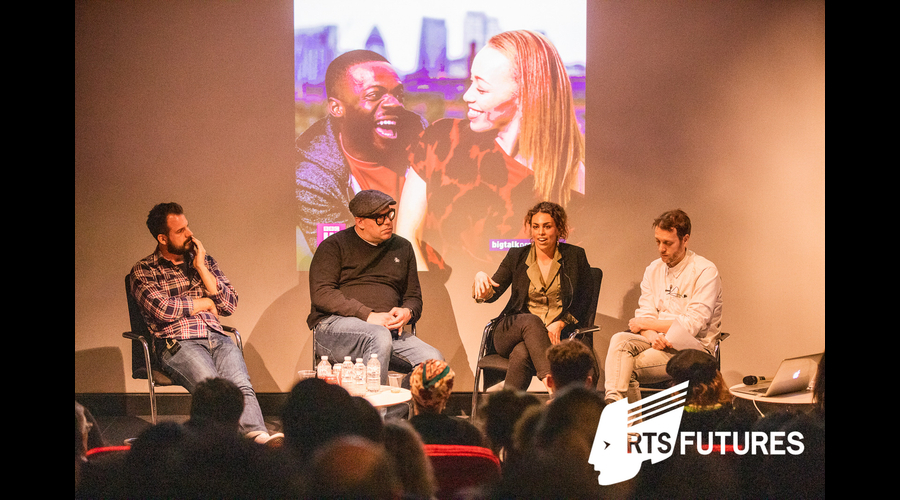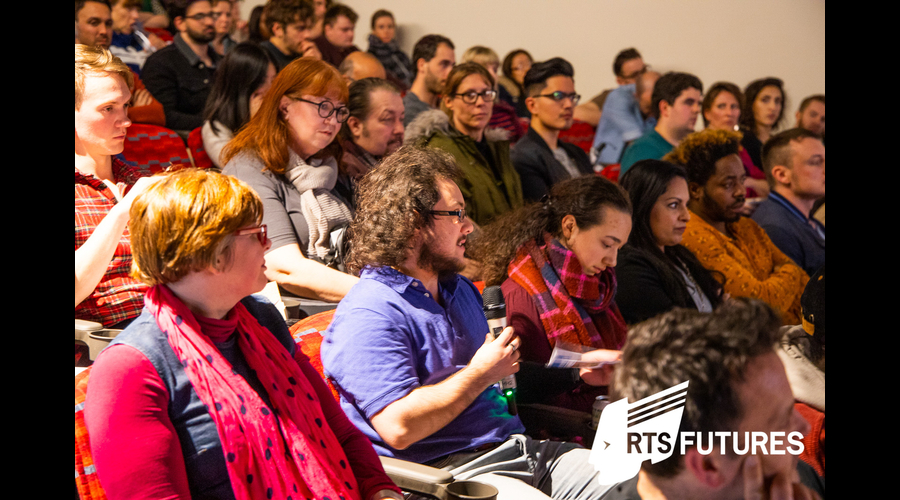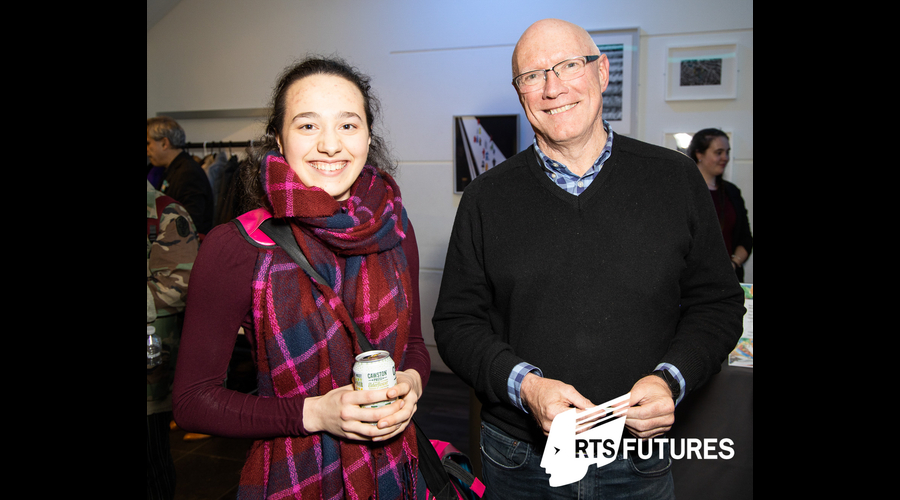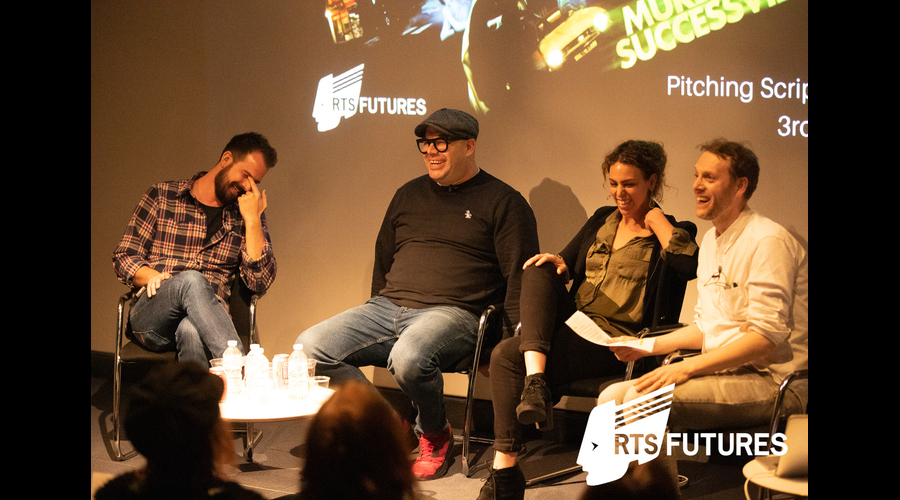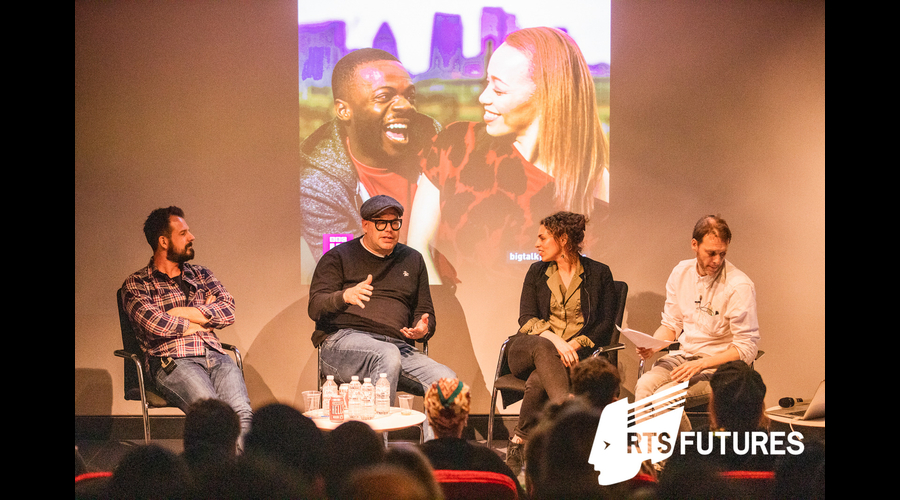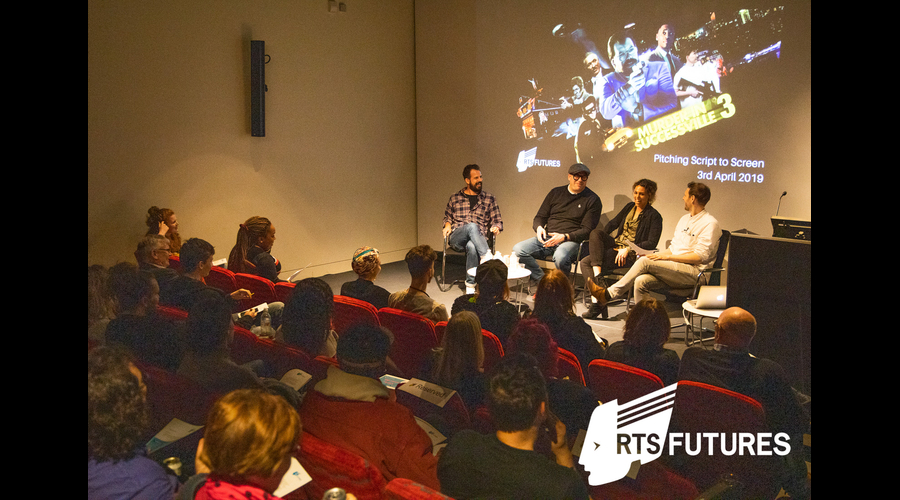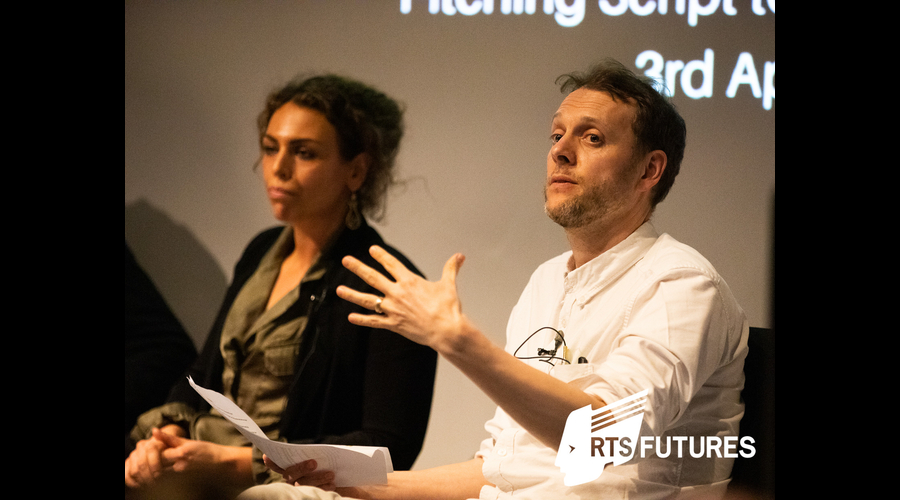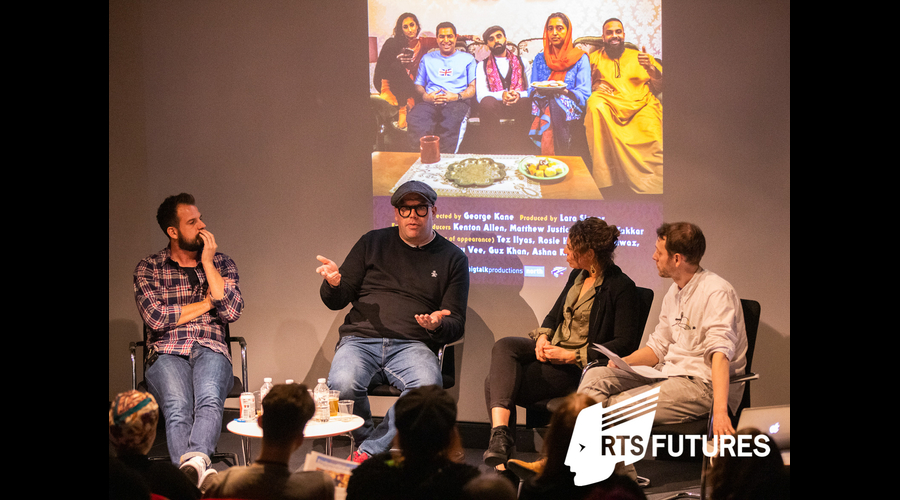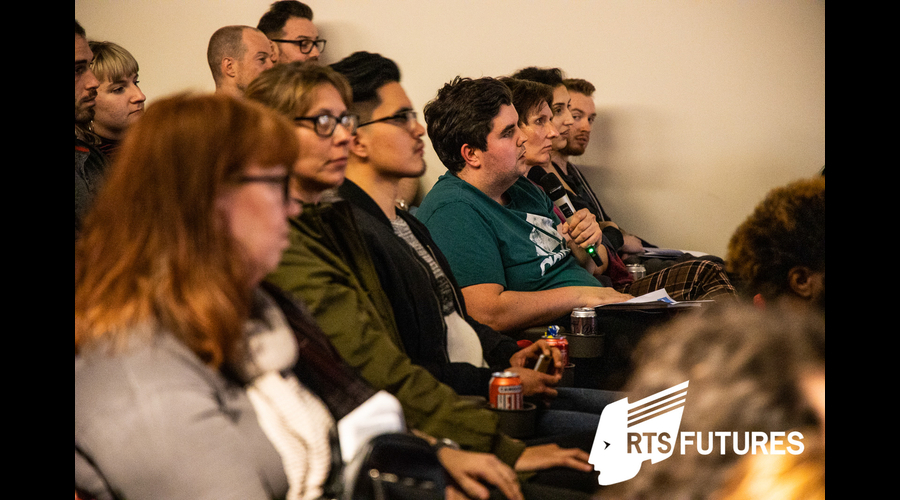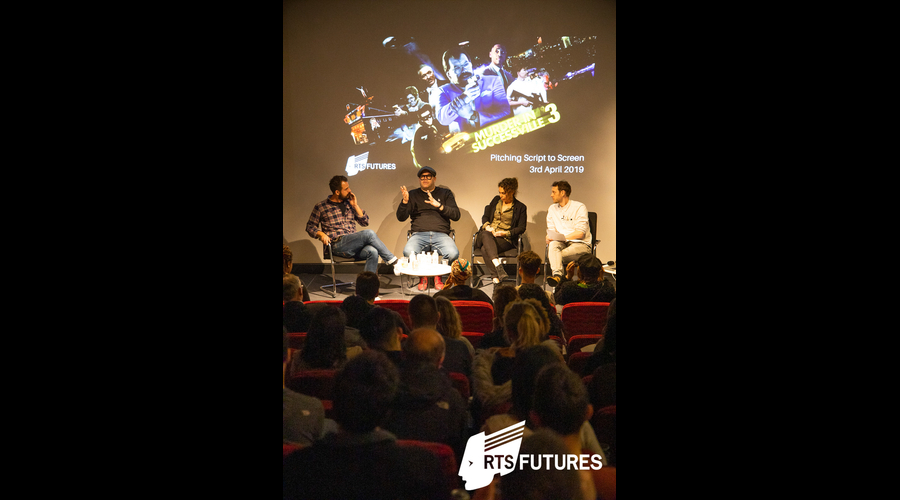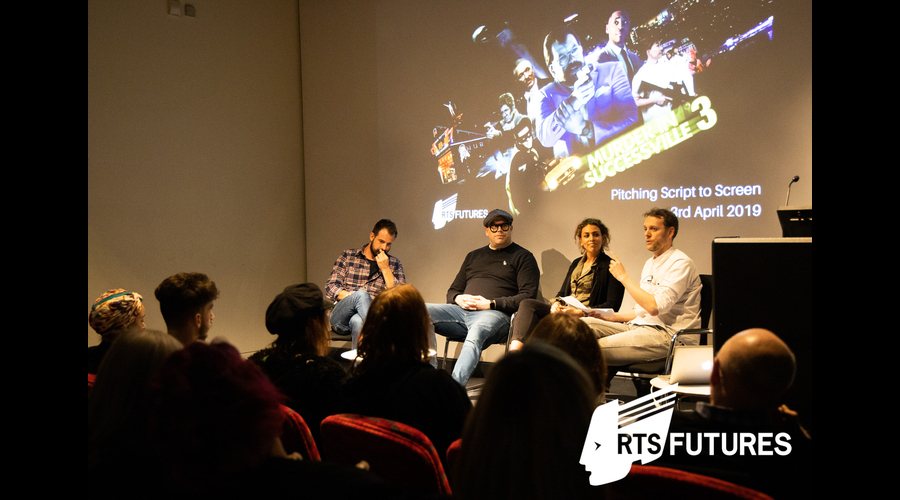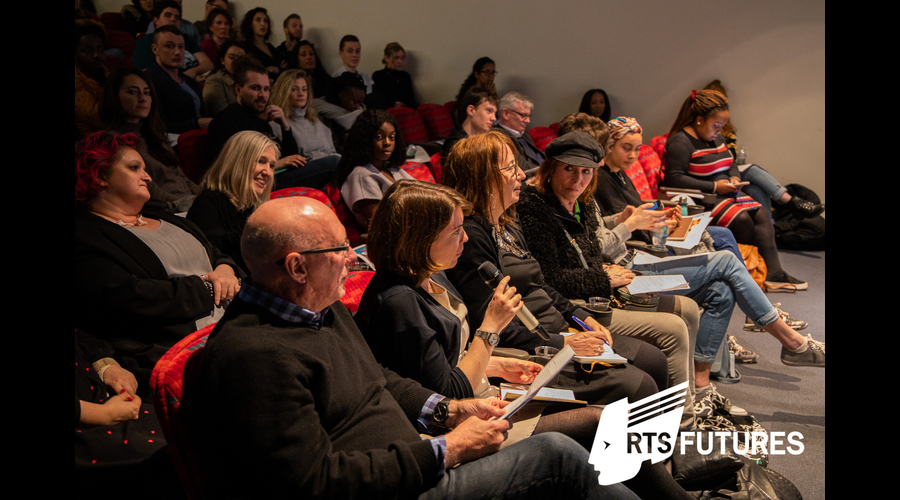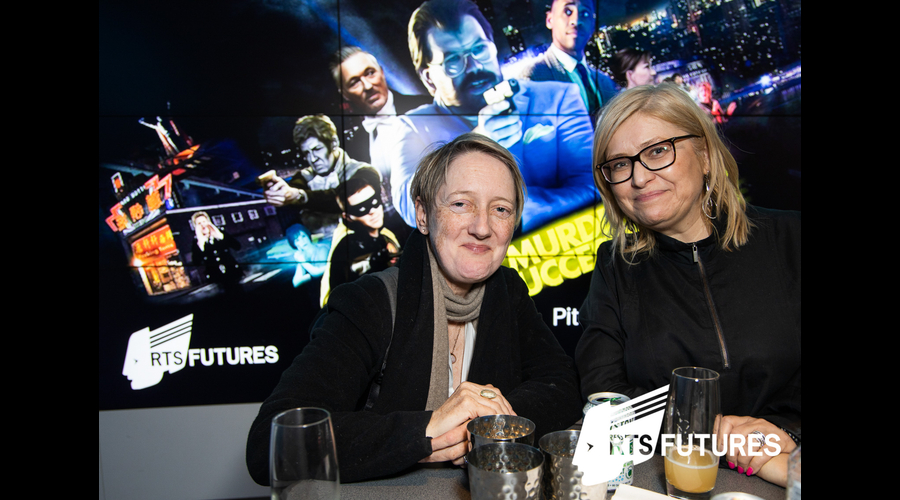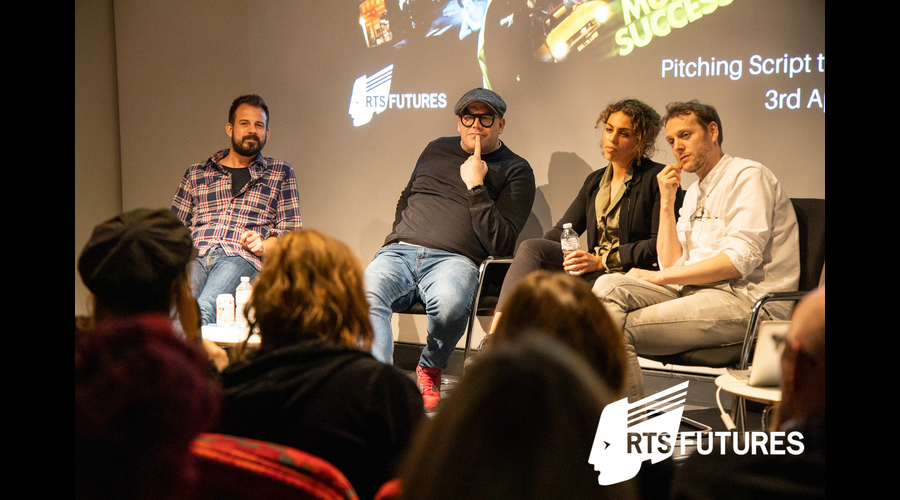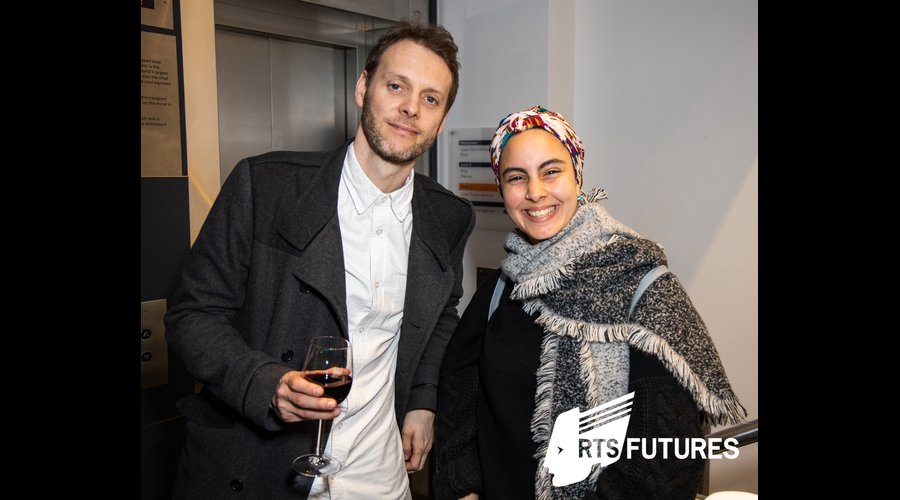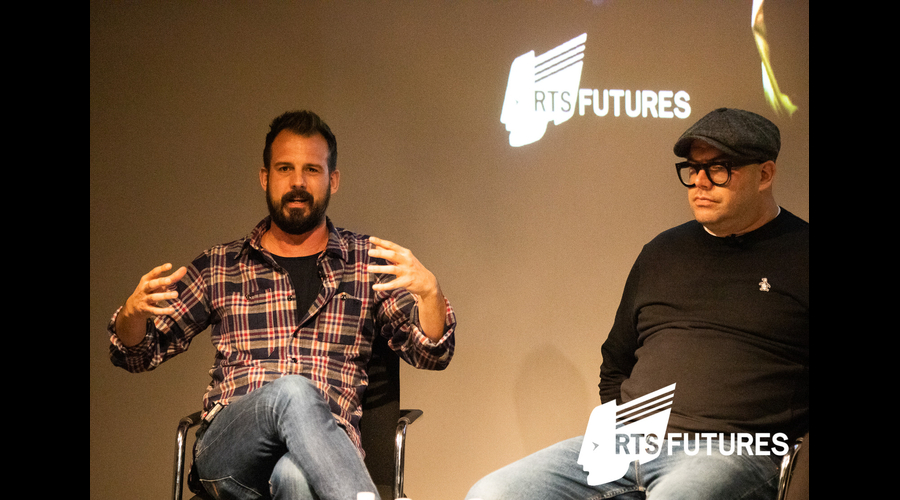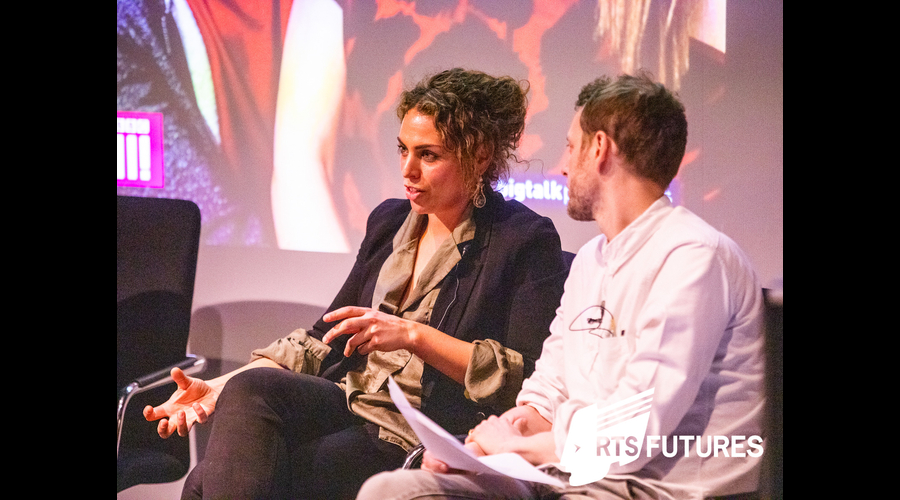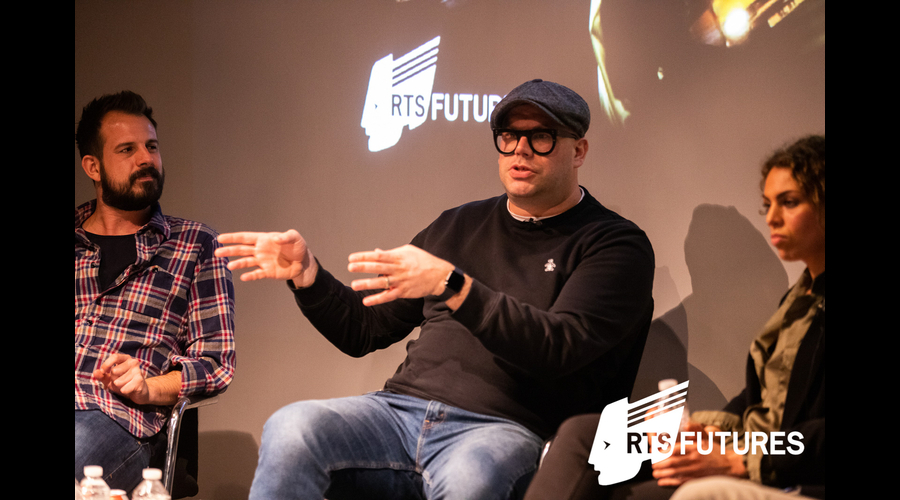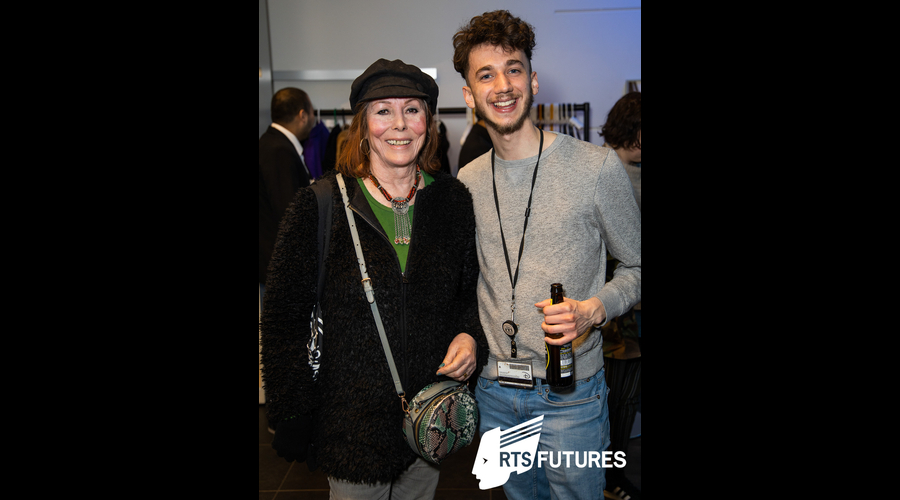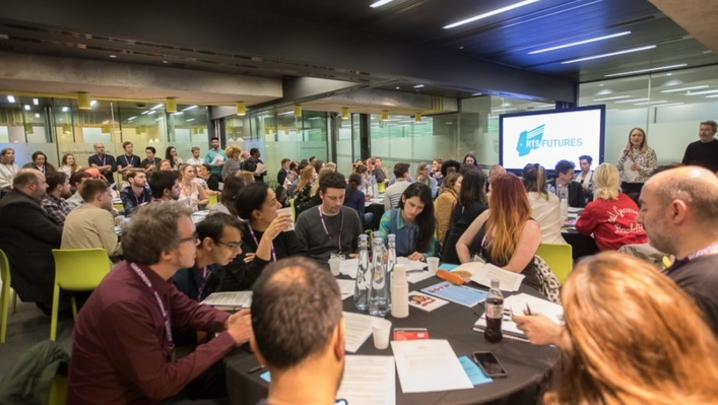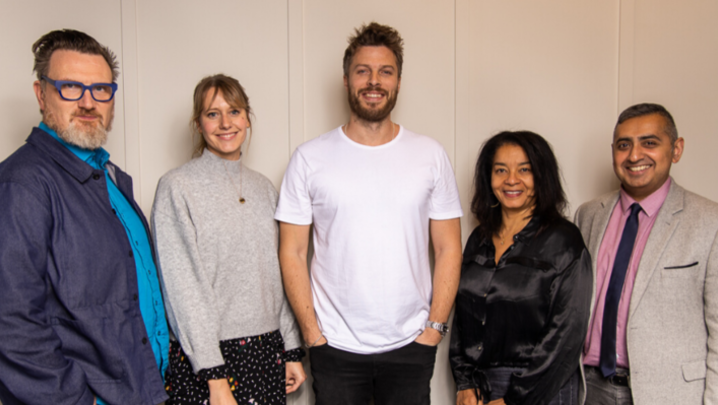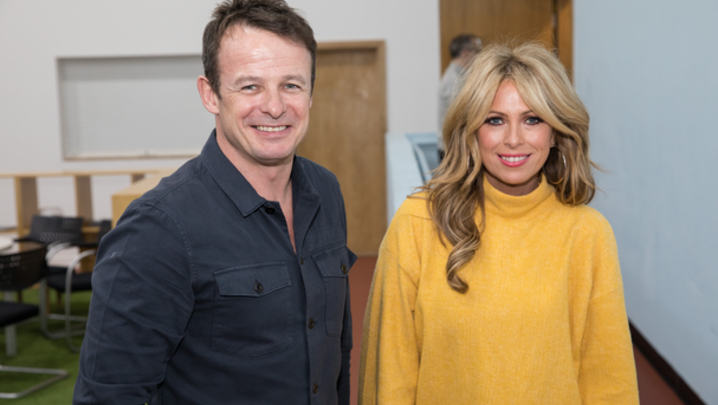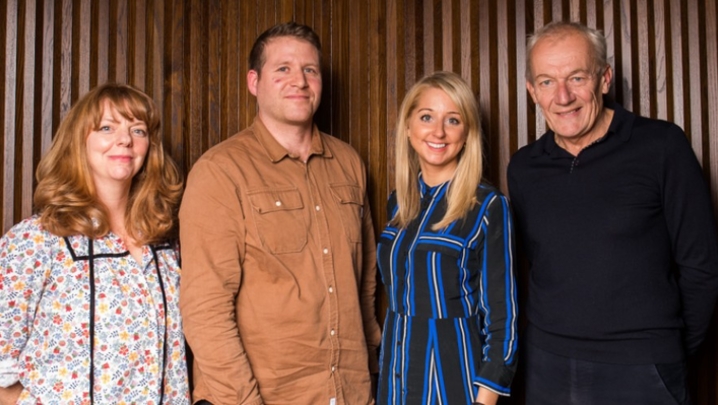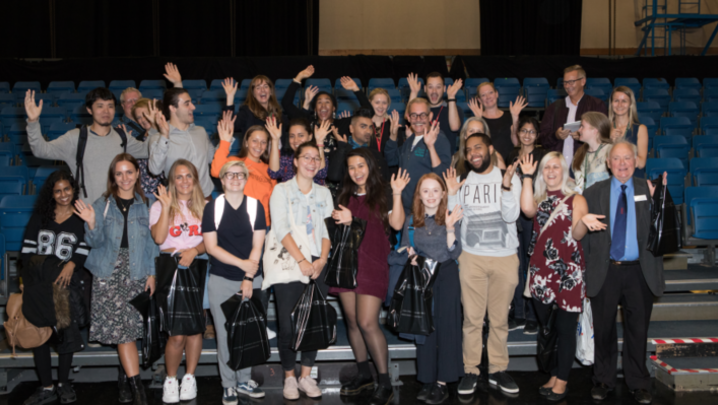A packed RTS Futures event, Pitching Script to Screen, offered tips on how aspiring writers and producers should sell and hone their ideas.
A packed RTS Futures event, Pitching Script to Screen, offered tips on how aspiring writers and producers should sell and hone their ideas.
Leading the expert panel of comedy and entertainment practitioners was Tom Davis, the star of the Bafta-award winning BBC Three sitcom, Murder in Successville.
Throughout the session he stressed there was no substitute for hard work and that even experienced TV actors and writers like himself never stopped learning.
Davis said that it was important to be “passionate” regarding the ideas you are trying to sell.
His colleague and sometime co-writer James De Frond – they and session host Andy Brereton (co-creator of Murder in Successville) set up Shiny Button Productions two years ago – told the audience that when attending pitching meetings it made sense to have more than one idea.
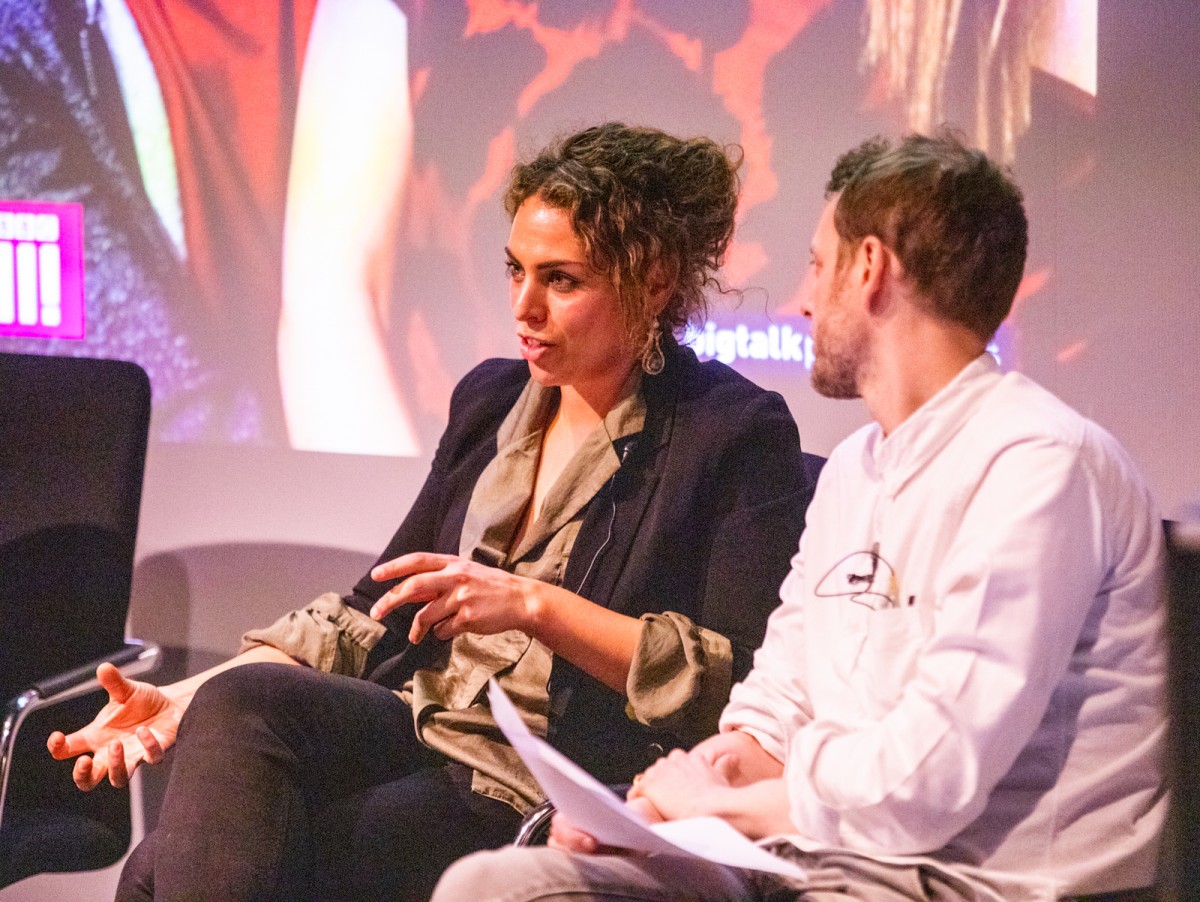
(Credit: RTS/Paul Hampartsoumian)
“Always have a back-up idea,” he advised recounting the time he went to Channel 4 to pitch a high concept Western that was immediately rejected.
“[They said]’We love it but we’re already doing a big high concept show.’ In our back pocket we had another idea – based on a true crime that took place in the 1980s - which they loved.”
Davis added that it was important to “know an idea inside out.” It paid to spend a lot of time interrogating the idea before the pitch.
He said: “You’ve got to make sure that every question they throw at you, you’ve got the answer to. You’ve got to think ‘why would people watch this? What’s funny about it?’
“The stronger your idea and the fewer holes in it, the less questions they [the commissioner] will have about it. Make sure there is nothing half-baked about it.”
De Frond pointed out the way the idea is packaged was vital. It helps to have star names attached to the proposal. “It’s got to be a package they can’t turn down.”
Lara Singer, a development producer at comedy specialist Big Talk Productions for the past five years, agreed that the overall package was key.
“You’ve got to ask yourself questions like ‘Do we need to get another writer on board? Is it innovative? Have they ever seen anything like this before?’” she said.
The content glut meant that an idea had to stand out from the crowd in today’s world.
Experience of working for several different production companies helps writers and producers to acquire different approaches, noted Davis.
He told RTS Futures: “I’ve worked for Big Talk, Baby Cow and Tiger Aspect. Every company comes at it from a slightly different direction. You learn different ways of attacking it.”
Brereton advised that the opening paragraph of a treatment should sum up the idea in a single sentence, fleshed out by more detail in subsequent sentences.
He added: “I always think that if you can sell an idea in a paragraph… Commissioners have no time and have piles of scripts, so you need the first line of your treatment to pique their interest. If you’ve got them by the second page they’ll read the rest.”
Chipped in Davis: “You want to walk out of that [pitching] meeting knowing they’re going to remember it for the rest of the day. Act it out, make ‘em laugh, make it funny.”
He added: “Attach jokes to stories. It might not be the best joke you've ever heard, but it has to link to the story (otherwise it'll probably get cut).”
With new talent, stressed Singer, it was important to rehearse the pitch thoroughly. “We run through everything beforehand to make sure they're comfortable,” she said.
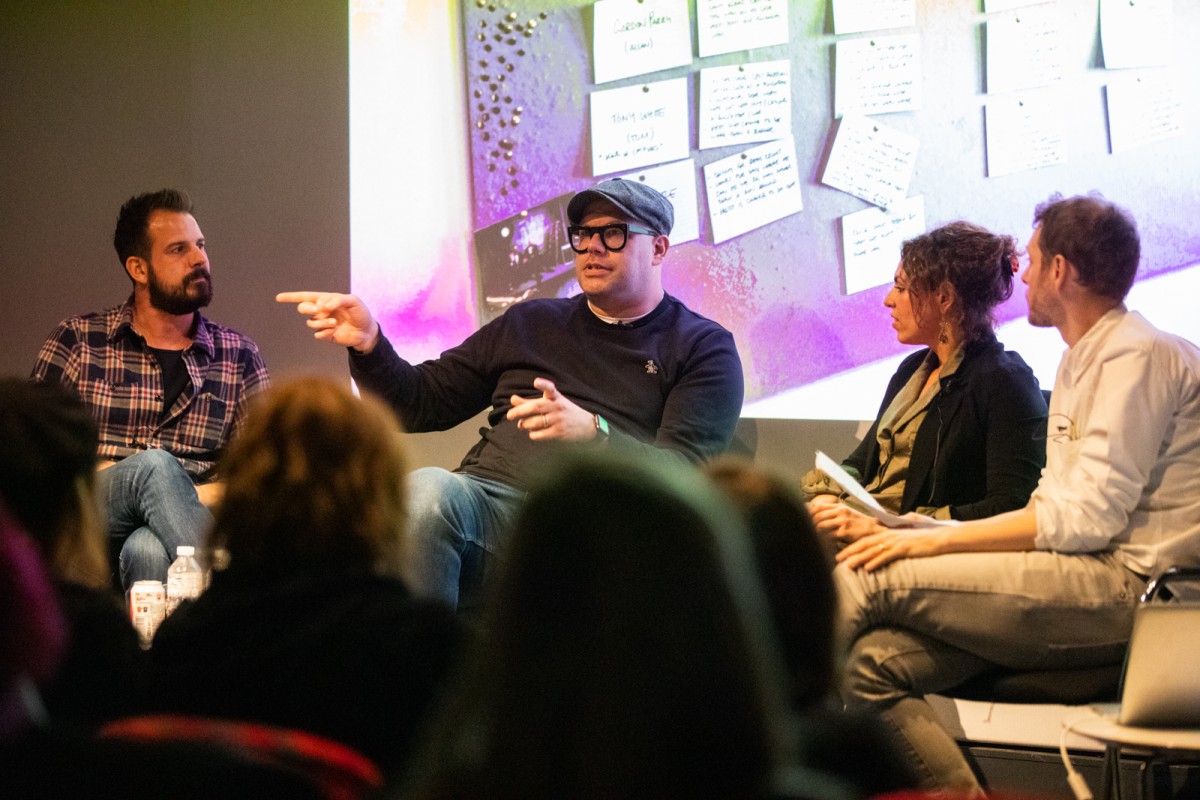 The tone and style of the treatment (preferably with pictures) all help, said Brereton. “A friend of ours did Sex Education and the treatment actually looked like Sex Education but not so it got in the way,” he said.
The tone and style of the treatment (preferably with pictures) all help, said Brereton. “A friend of ours did Sex Education and the treatment actually looked like Sex Education but not so it got in the way,” he said.
Singer explained that “interactive treatments” utilising social media have started to emerge.
She told RTS Futures how she sold a new relationship comedy, Just A Couple, to BBC Three. The series focuses on the lives of modern couple, Mark and Shavon, and was developed from a YouTube short made by Sebastian Thiel, his sister and best mate: Thiel was named by the Evening Standard as one of the most influential Londoners under-25.
“It didn’t come through the usual route of an agent or a production company,” said Singer. “We get a lot of shorts send in but Just A Couple immediately stood out.
“It was warm, characterful and funny. We spent two years with Sebastian working on how we could develop it from a short into something that exists in a bigger world.
“Sebastian is a brilliant example of someone who didn’t follow the usual paths. He didn’t go to film school. Just a Couple is totally fresh and he has a totally distinct voice. He’s amazing and doing brilliant things.
“It’s an example of how someone who was totally off our radar and made something off his own back can cut through.”
Davis said it was always important to spend a long time “crafting and honing” an idea. This had been the approach on Murder in Successville and King Gary, which he co-wrote with De Frond (who also directed) and was shown on BBC One last December.
“I put my heart and soul into it,” said Davis. “I didn’t write it because I wanted fame and recognition. If you want that, a quick hit of fame, go on TOWIE.
“If you want to learn a craft, take a time to learn a craft. Learn how to write. I am still learning every day. All of us sitting here are still learning. “
The RTS Futures Event, Pitching Script to Screen was held at the London Transport Museum in Covent Garden on April 3. The producers were Andy Brereton and Melissa Clay-Peters, Head of Creative Talent at EndemolShine UK


